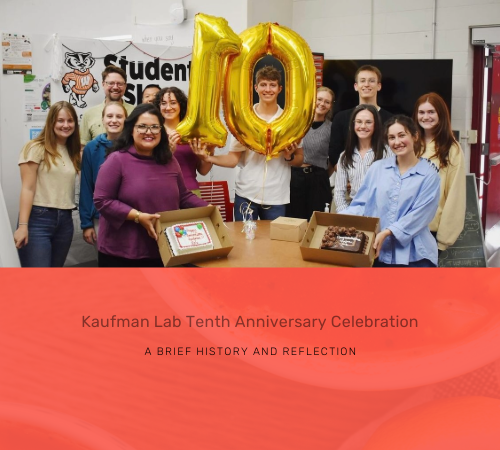
Written by Haley Traun
On September 28, 2024, a group of students, alumni, faculty, and supporting community members gathered at the University of Wisconsin Department of Urban Planning and Landscape Architecture to celebrate the 10th anniversary of the Kaufman Lab for the Study and Design of Food Systems and Marketplaces. The passionate and hopeful energy in the room was undeniable as stories circulated about the creation, impact, and future direction of the lab. Reflection, in laughter, awe, and tears, were shared over a generous spread of fresh snacks, pizza, and baked goods – folks who care about food systems never call for a gathering without providing excellent provisions…
Professor and former DPLA chair Alfonso Morales initiated the Kaufman Lab in 2014 in honor of late Emeritus Professor Jerry Kaufman, a distinguished urban planner and community advocate who championed planning that benefits those impacted by racism, inequality and poverty. Colleagues, mentees and the vast community of those he impacted through his work continue to echo his fierce dedication to better understanding how to incorporate unexplored aspects into urban planning, including focusing on food systems planning and support.
The creation of the Kaufman Lab exemplifies the longstanding tradition of the Wisconsin Idea, which signifies a general principle that education must influence and benefit people’s lives beyond the walls of the classroom, especially in the historically ivory tower tendencies of a major university setting. A major project within the lab that upholds and pushes the boundaries of Wisconsin Idea values is Farm2Facts (F2F), an organization dedicated to providing data collection tools to farmers markets and farmers to empower their decision making, improve communication to stakeholders, and secure funding and growth opportunities.
At the Kaufman Lab tenth anniversary panel, alumni Lauren Suerth, PhD, who worked alongside Morales and others to establish F2F, previously known as MIFI (Metrics and Indicators for Impact), discussed the project’s goal of creating a data collection tool that not only informs academic research, but also empowers the agricultural community to collect, securely store, and access data that can be used as a vehicle in growing their business and reaching farming practice goals. This approach to reciprocal partnerships helps create opportunities for researchers to better understand and spearhead efforts in response and in service to those impacted by their work. Both Suerth and current director, Associate Professor Edna Ely-Ledesma, PhD, noted the challenge and urgency of this approach in urban planning and food systems design.
In a recent interview, Ledesma reflected on how far F2F has come since its inception and in her four years as director. This includes securing several grants, growing into its largest team of staff and interns ever, expanding services to include farmers in addition to market managers and organizations, and updating the data collection tools to more deeply measure economic, social, and ecological impacts of farmers markets and independent farming practices. An example of this growth includes a partnership with the Rodale Institute on a major USDA grant called the Southern Piedmont Climate Smart Project, which focuses on these three impacts, including assisting farms with ecological impacts like soil health and carbon sequestration.
Other research and projects within the Kaufman lab include emphasis on interdisciplinary contributions to food systems development, supply chain development, farm to school and obesity prevention efforts, and most recently food systems data applications to computational intelligence development spearheaded by The Ohio State University on a project called ICICLE. F2F values emerging technological advances in computer and data development and its potential to improve food systems, and brings an emphasis to the development of ethical and equitable advances in data collection, use, storage, and access.
The Kaufman Lab 10th Anniversary gathering and panel was just one of several activities and lectures throughout the day as part of DPLA reunion activities, including a tour of the new Black Business Hub on 2352 S. Park St. from Ed Lee of Urban League and a tour of Troy Gardens, which Kaufman helped develop, by Paul Huber of Rooted and F2F staff and UW-Madison teaching faculty Nathan Larson. Though this day of reflection, connection, and learning greatly missed Kaufman’s presence, it was a day made possible by his legacy and work. For that the lab feels an immense gratitude and responsibility in contributing to these small efforts that hold the potential for great impact.
Ledesma, who was inspired by Morales’ work to join as faculty at the University of Wisconsin and the lab, notes in reflection on her career and journey as lab director that she hopes for a future of research that places community empowerment at the forefront of food systems design, and one where that consideration is an obvious piece of building a “smart, green, and just 21st century city”, just as Kaufman envisioned and championed. The history and success of the Kaufman Lab is an inspiring example of the convergence of full circle moments and the emergence and championship of new ideas as fuel for designing a more just community and environmental future.
